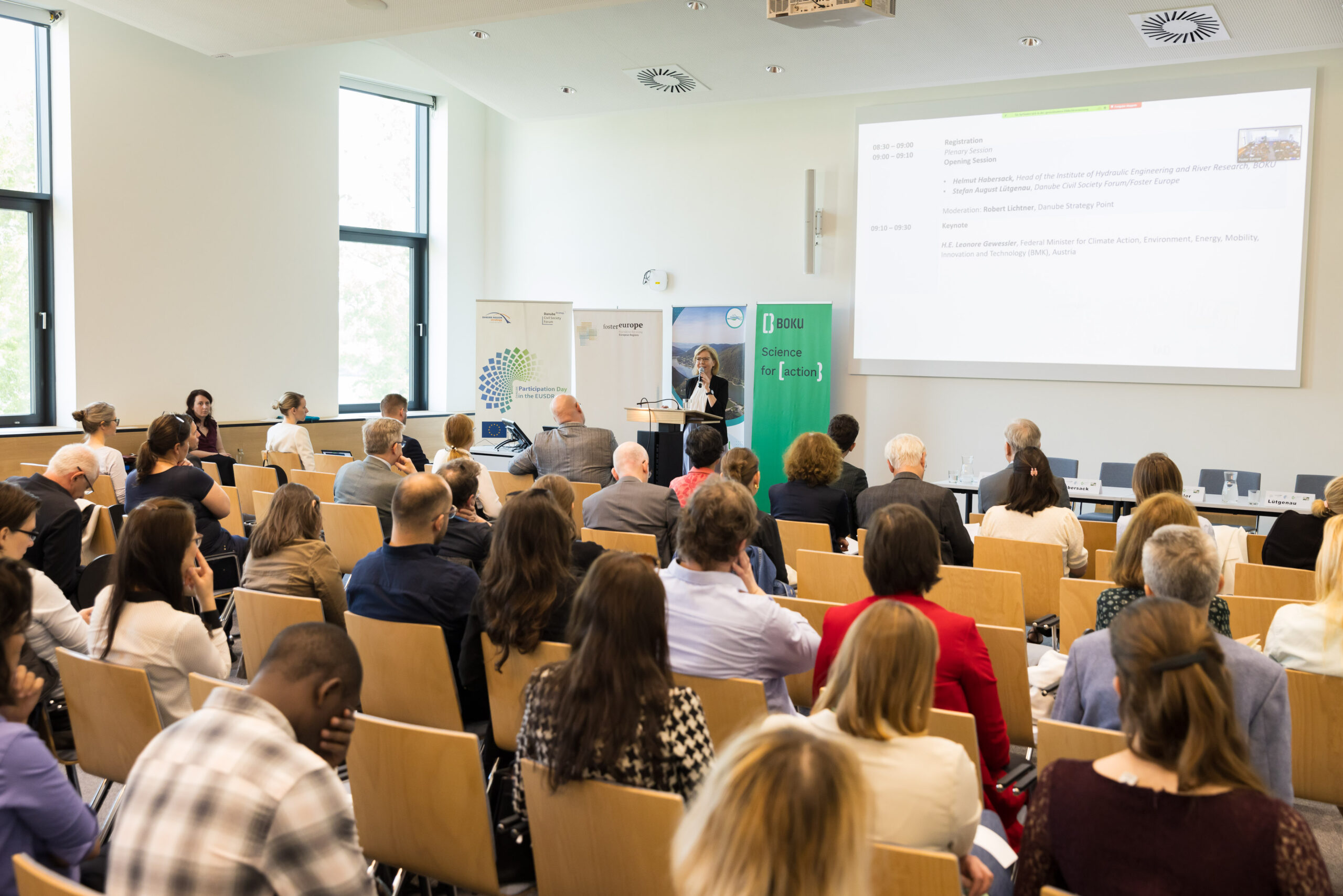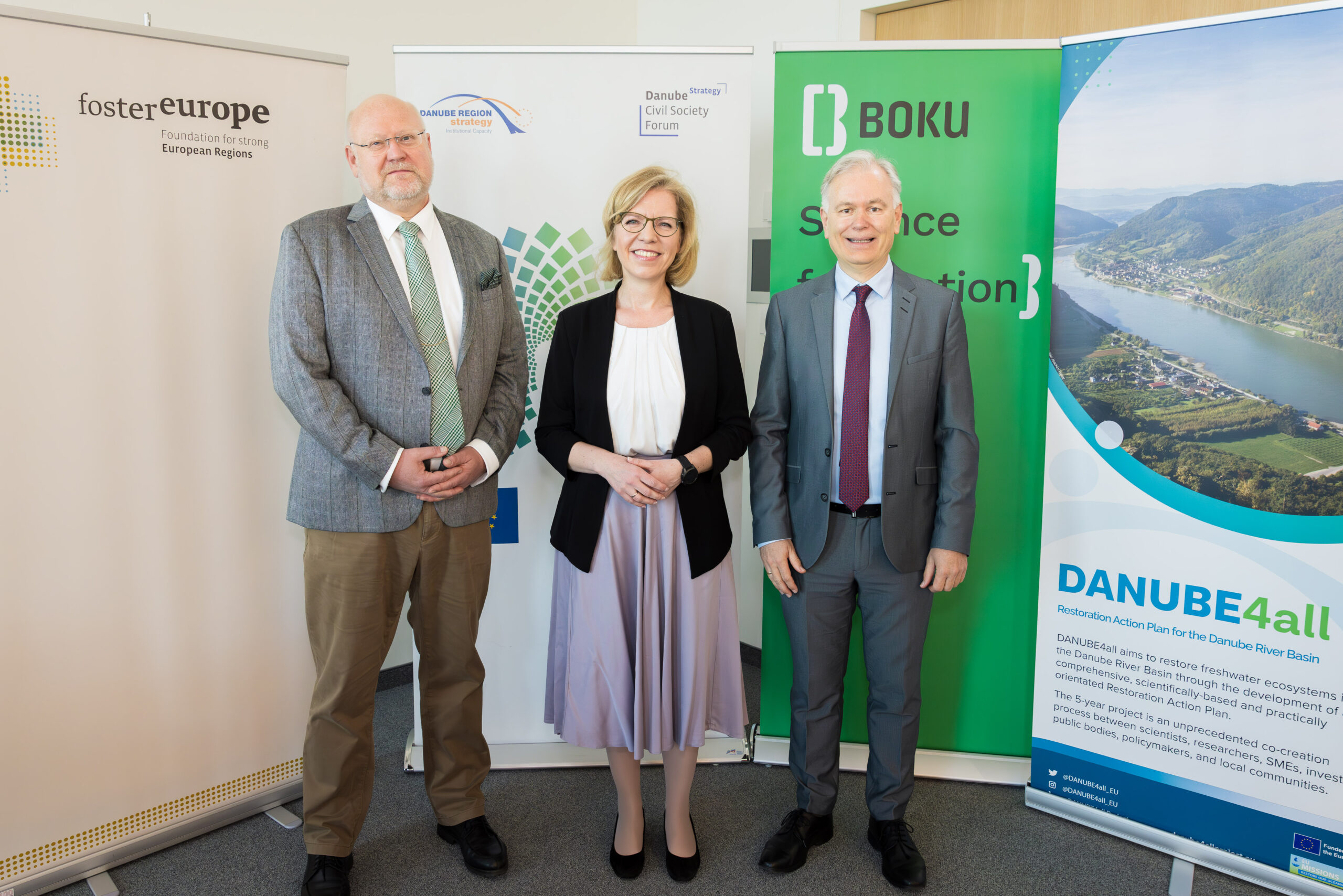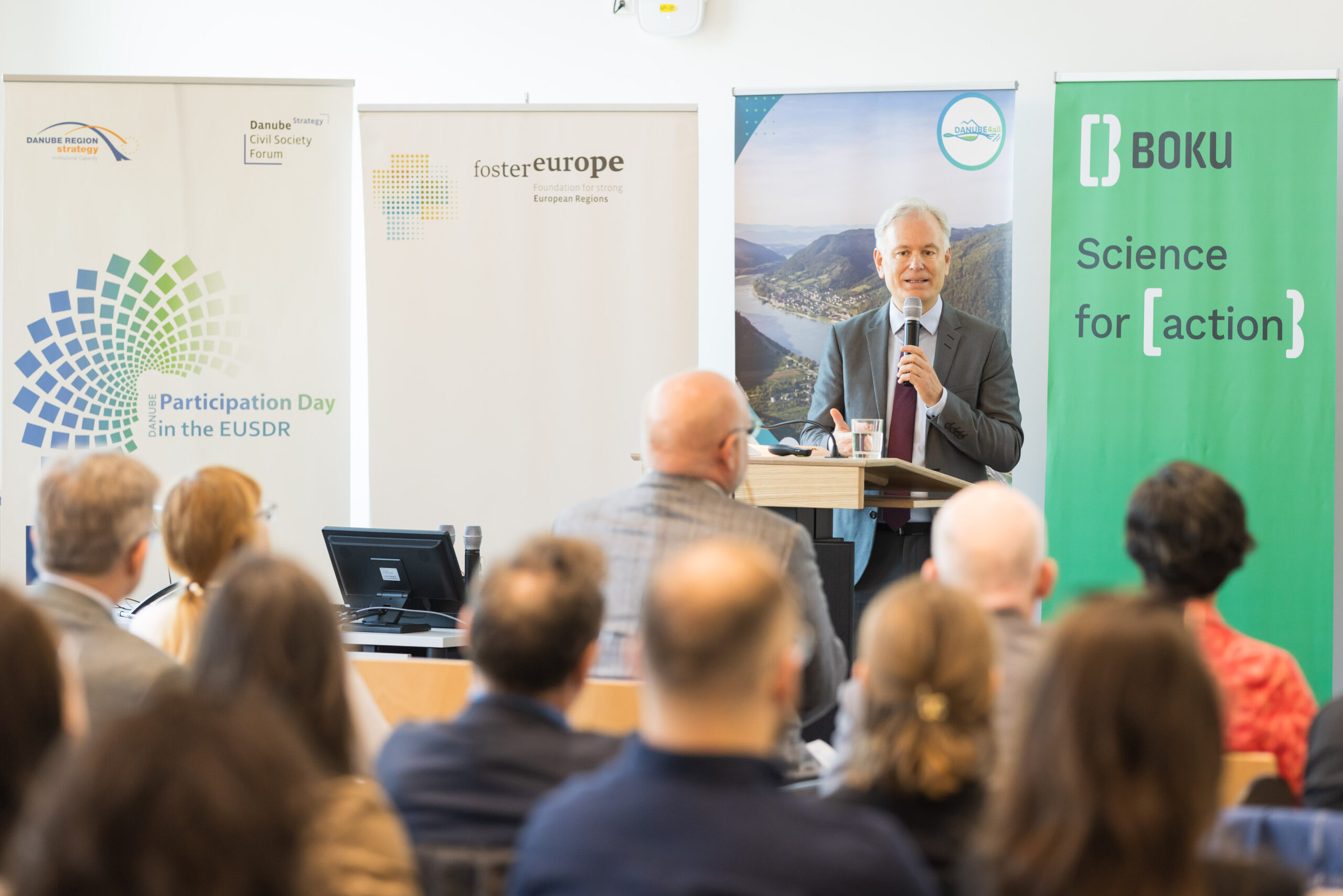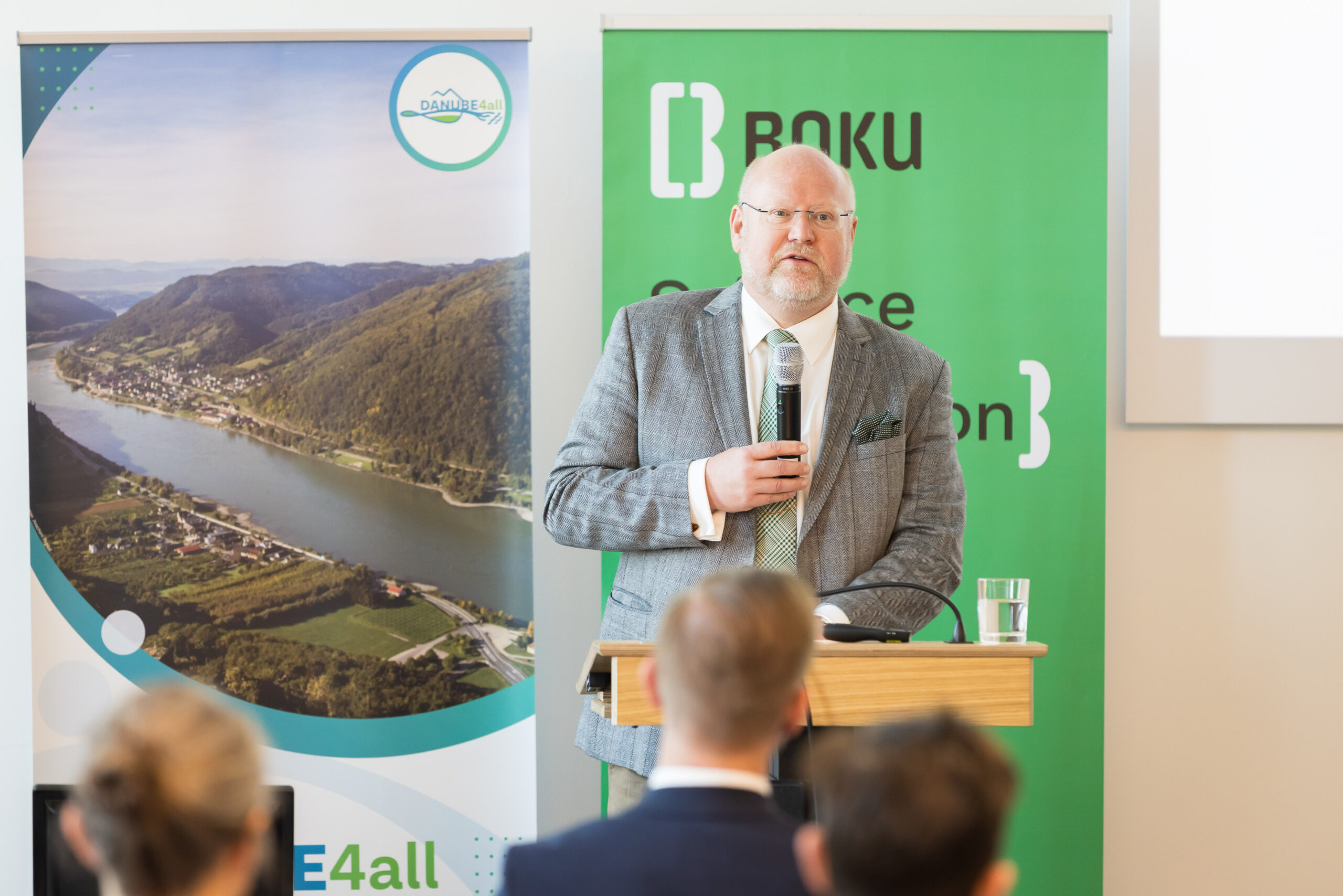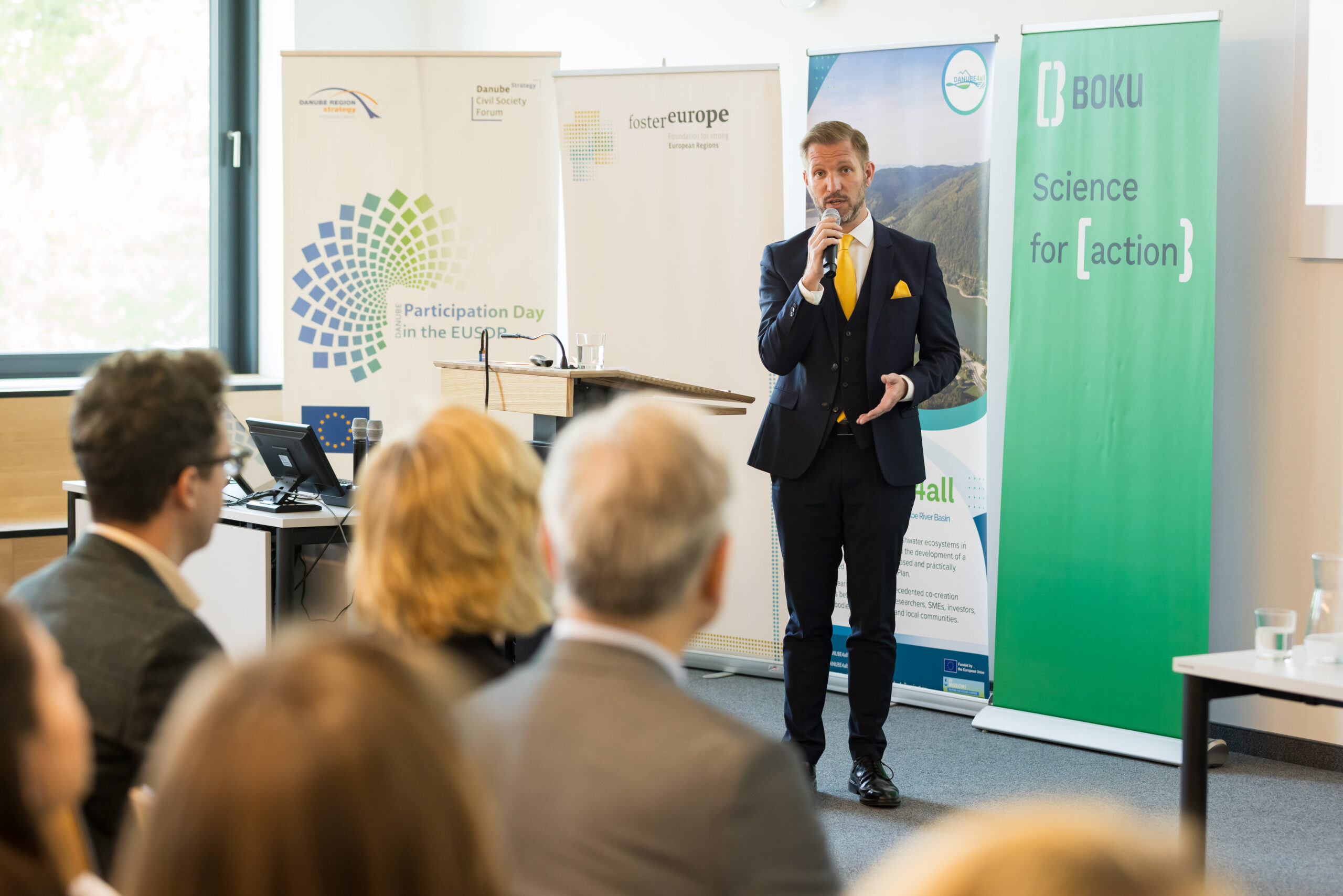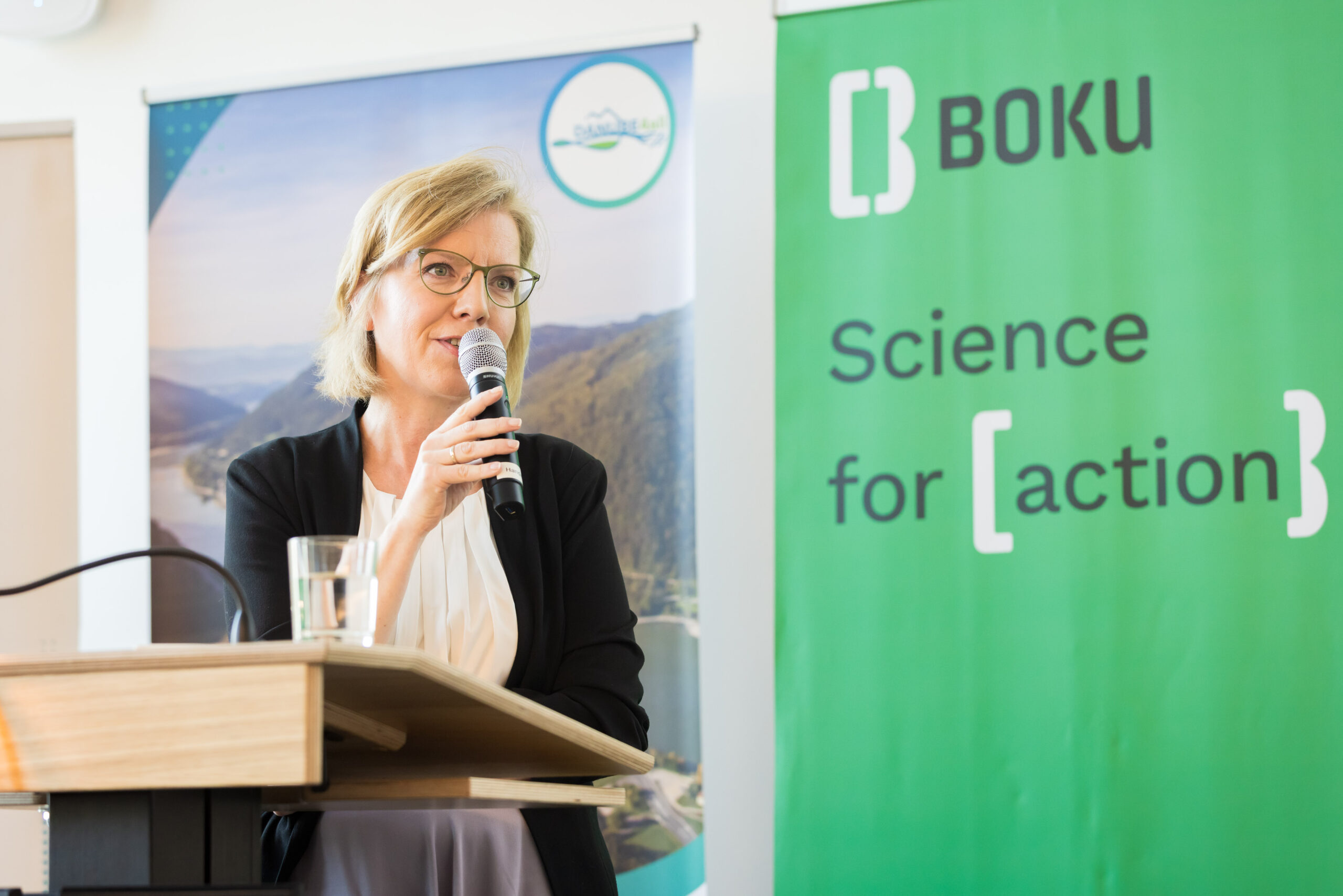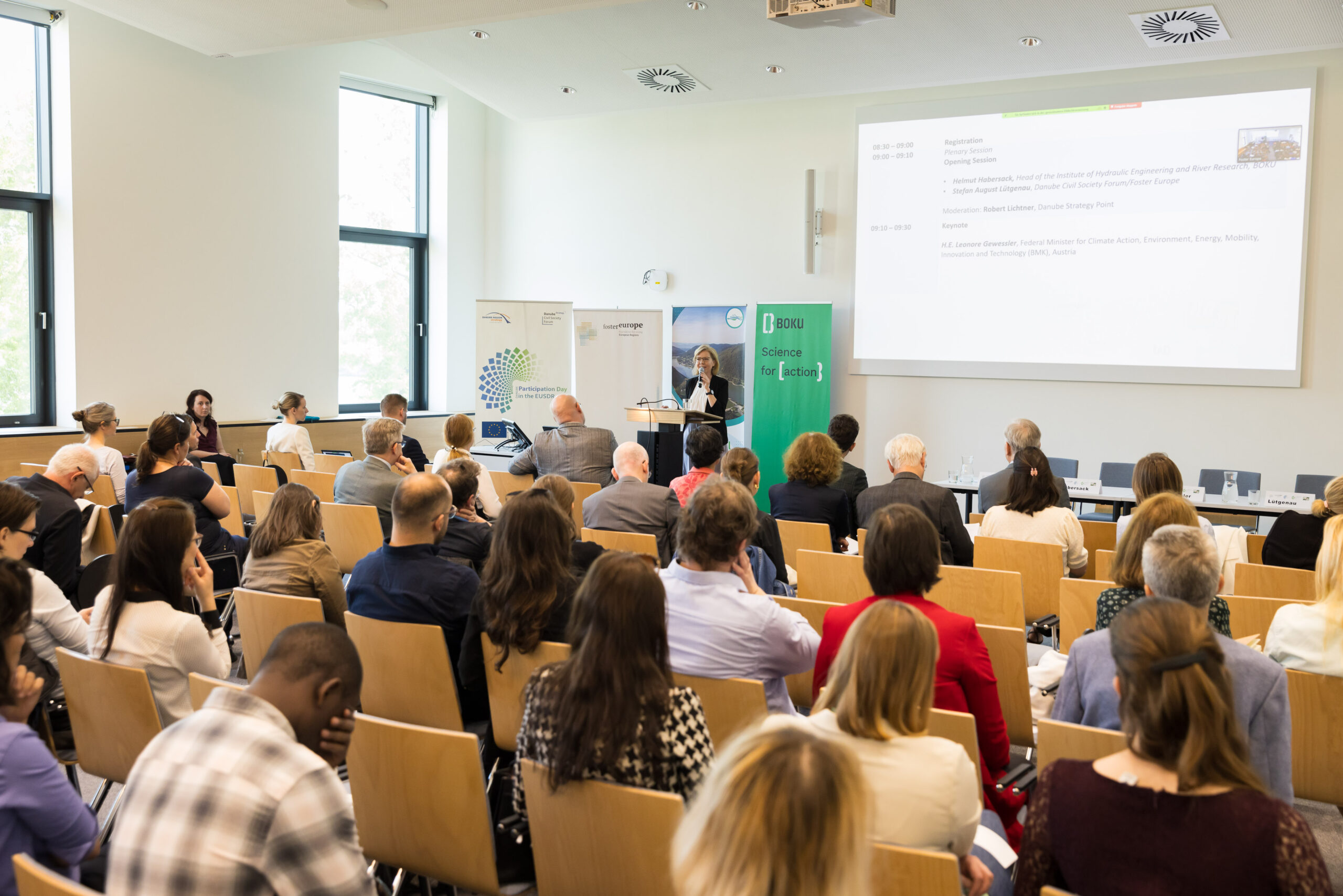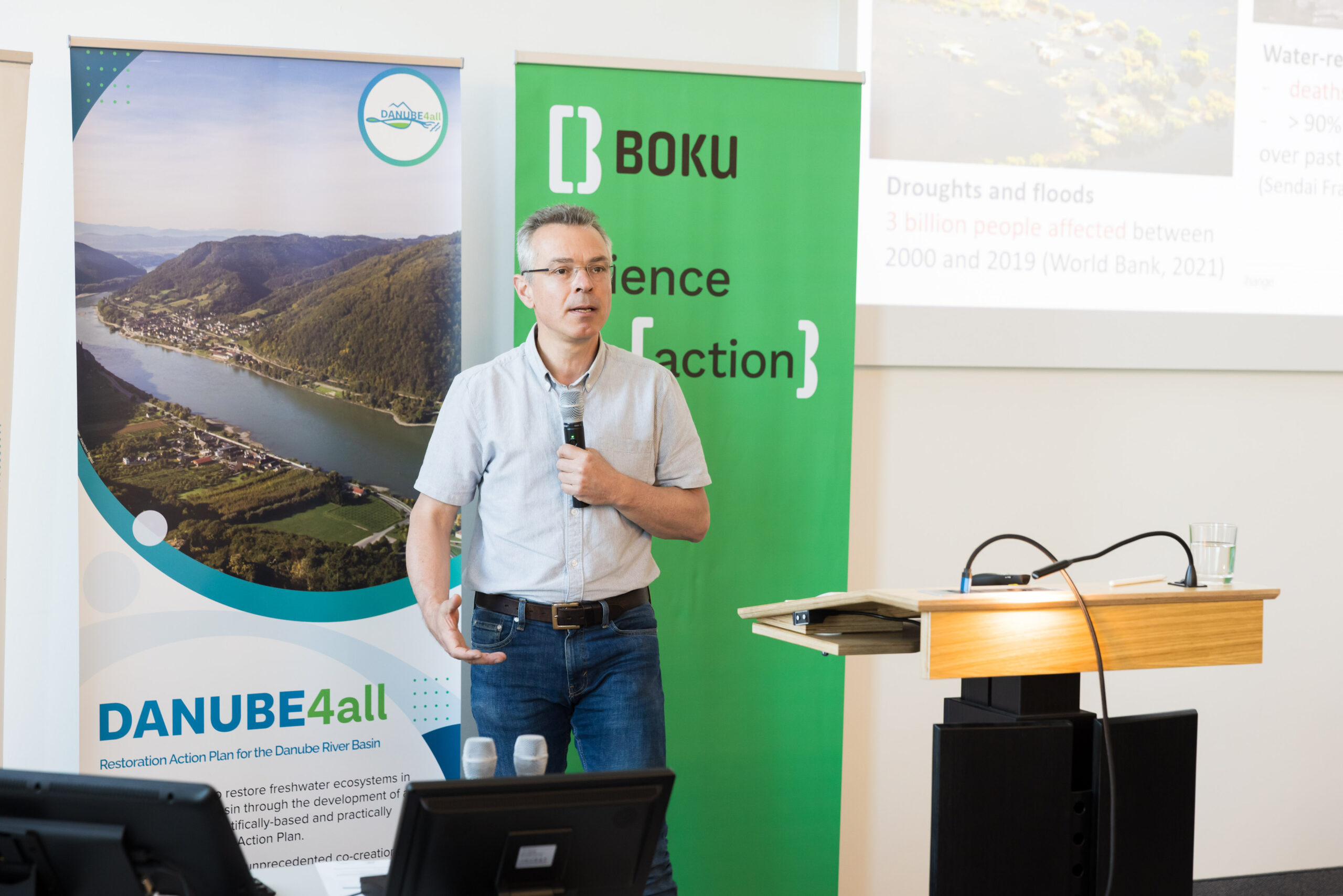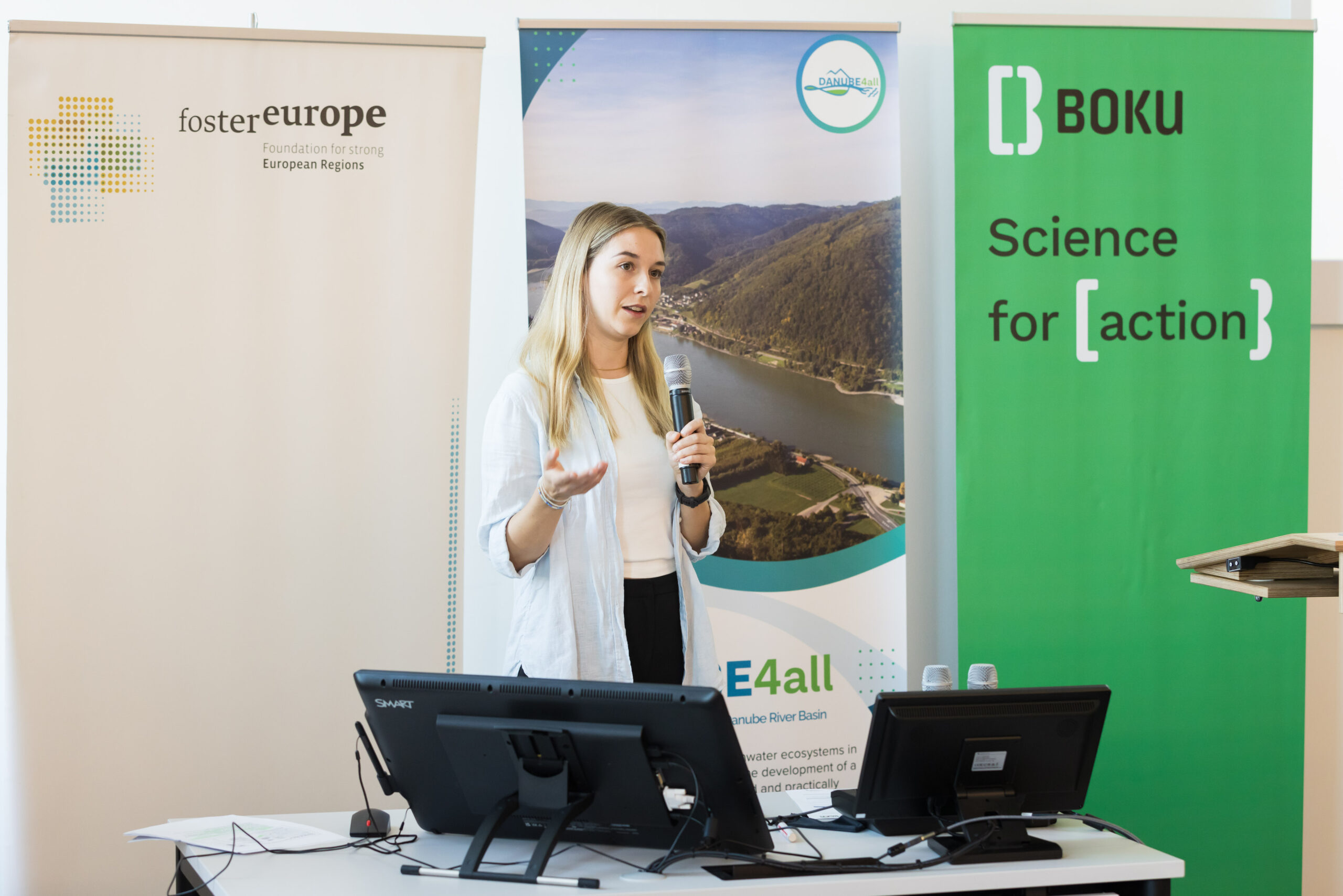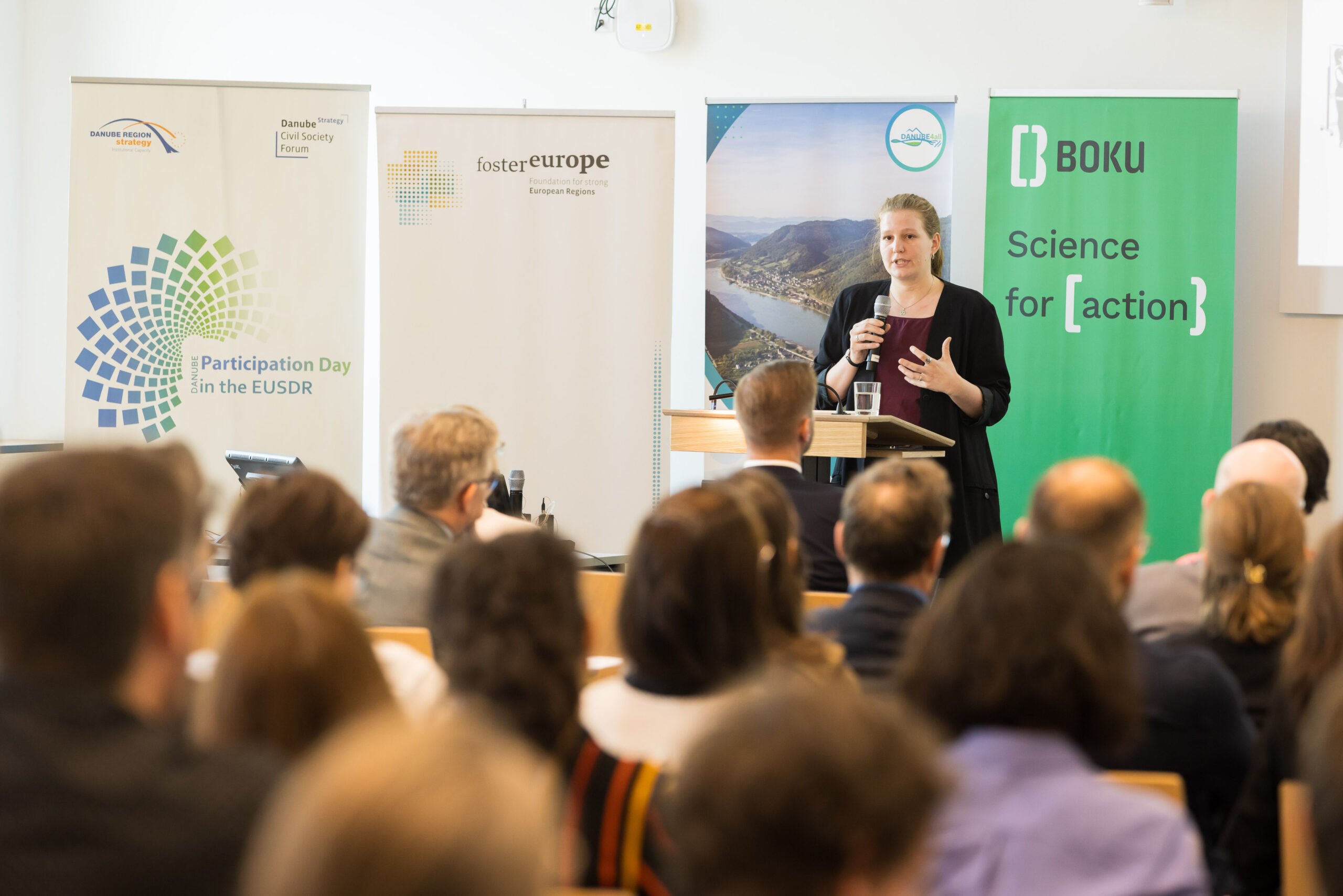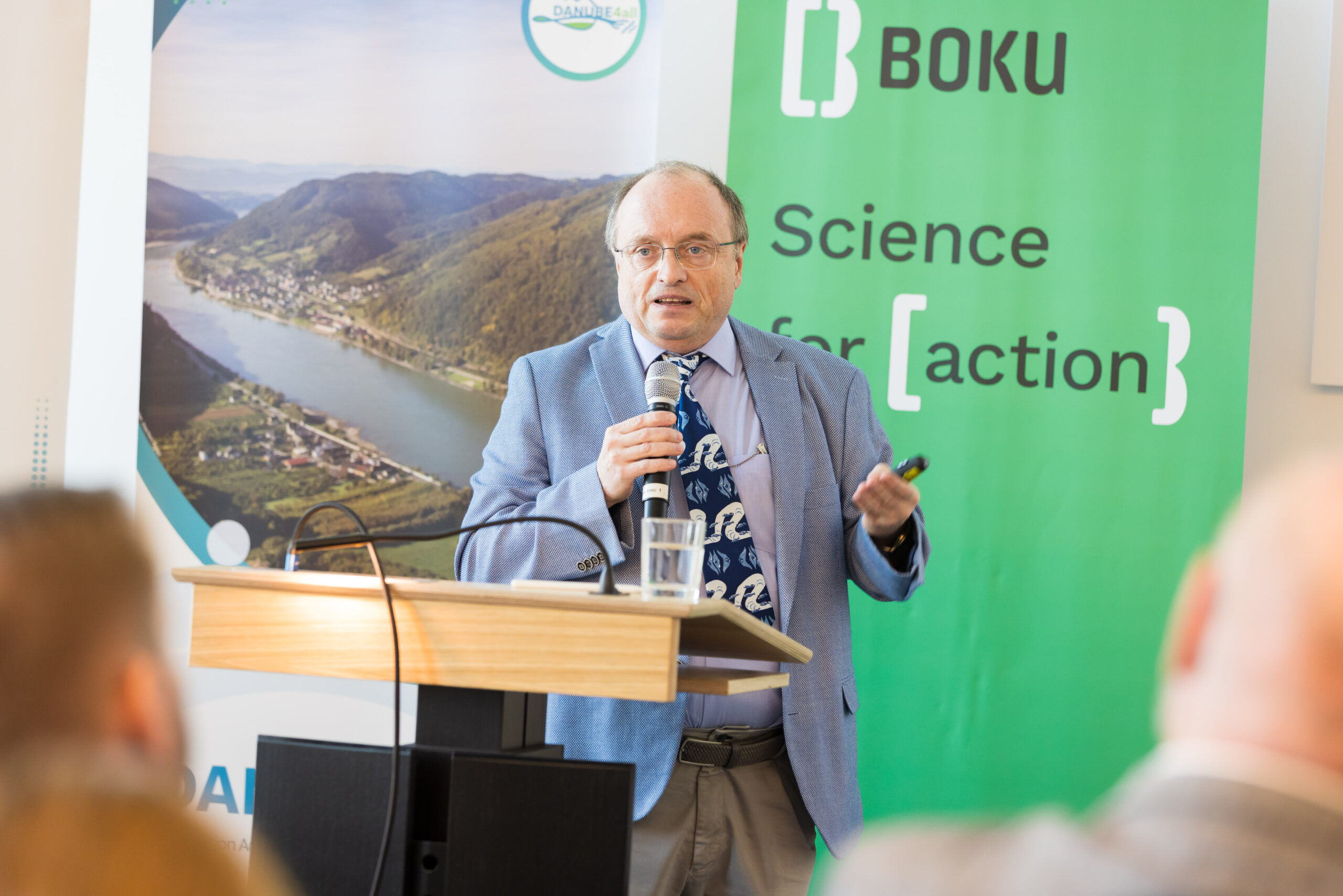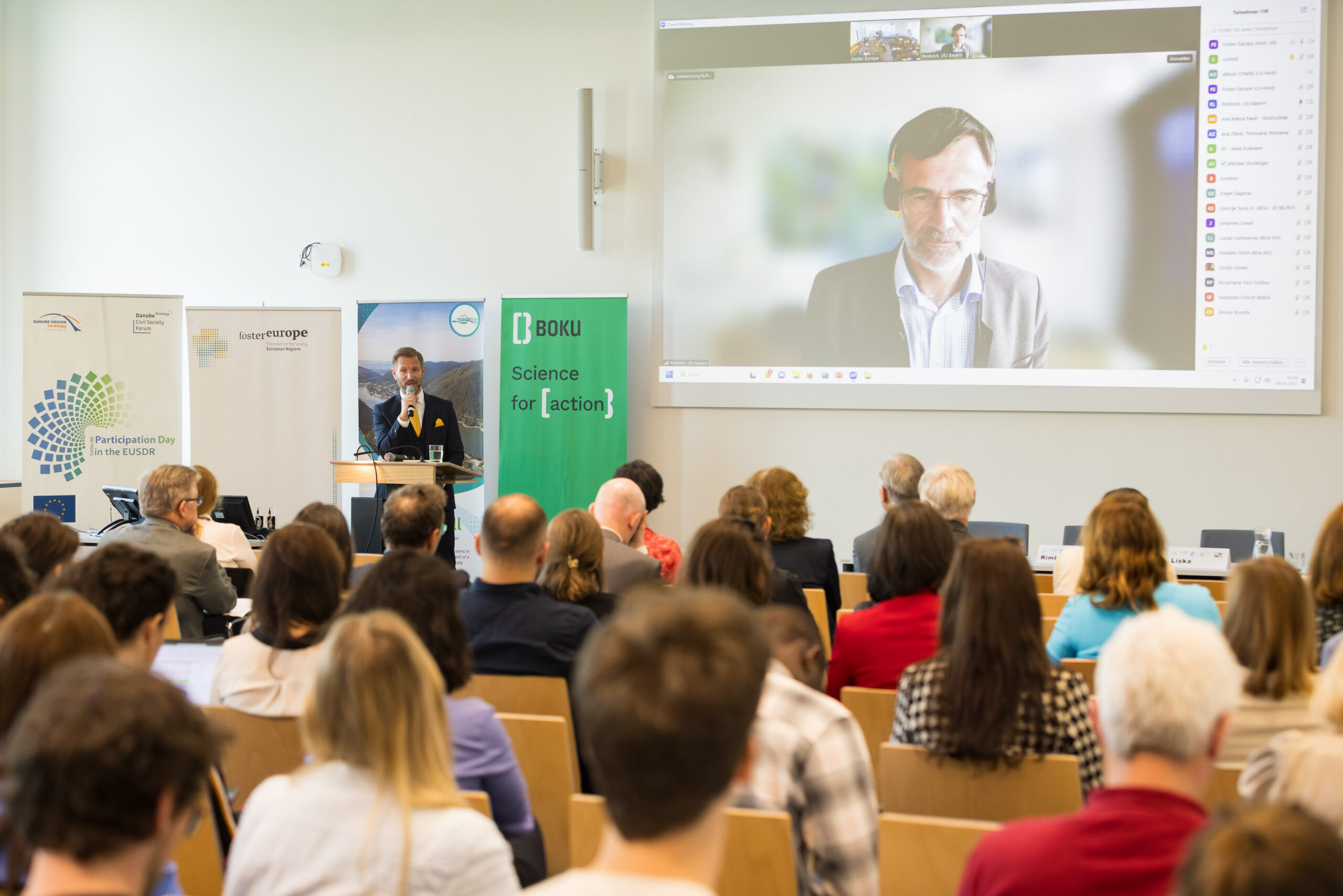© BOKU/ Christoph Gruber
On Tuesday, 9 April, international experts and decision-makers joined the 3rd edition of the EUSDR Austrian National Participation Day entitled Waters 2040: Climate Change and Resilient Water Management in the Danube Catchment.
The event was organised by Foster Europe Foundation for Strong European Regions, in collaboration with the University of Natural Resources and Life Sciences, Vienna, the BOKU Doctoral School Human Rivers, the Danube Civil Society Forum and the EUSDR Priority Area 10 – Institutional Capacity and Cooperation, under the auspices of the Austrian EUSDR Presidency 2024.
As the conference aimed to outline and formulate knowledge-based political, administrative, economic and social issues, demands and/or challenges connected to changes in the Water Circle and Water Management in the Danube catchment by 2040, the programme consisted of four key areas involving water management:
- Extreme Hazard and Climate Change
- Biodiversity Crisis & Challenges in Water Quality
- Energy & Transport
- Co-creation, Co-design and Citizen Science
The event delved into various crucial aspects of water management, including cross-priority areas discussions on floods and droughts and their effects on inland water transportation, sustainable energy, water quality, environmental risks, biodiversity, ecosystems, collaboration among relevant institutions, and engagement of citizens.
The collaboration between various stakeholders and the allocation of sufficient resources, along with political backing and effective empowerment, can help prevent the potential hazards arising from droughts and floods caused by ongoing climate change. By implementing the solutions proposed by experts, the Danube Region’s cooperative initiative can play a significant role in formulating a unified and sustainable approach towards water management.
Following the open discussions and opinion exchange, significant findings emerged emphasising the necessity for societies in the Danube River Basin to effectively handle and harmonise potential water conflicting requirements. Additionally, the EUSDR must establish and plan for its involvement in these procedures. Fresh methods to mitigate the impacts of floods and ensure equitable allocation of water during scarcity periods have to be negotiated at the local, regional, national, and transnational levels. It is imperative that directly affected stakeholders, scientific communities, and civil society actively participate in employing co-creation and co-design methodologies to shape future strategies.
The experts made recommendations on each key area included in the agenda. More details available here
***
The National Participation Days in the Danube Region Strategy (EUSDR) participating countries aim at strengthening trust between public authorities and civil society towards better cooperation for the well-being of people living in the Danube Region.
Photos: © BOKU/ Christoph Gruber




